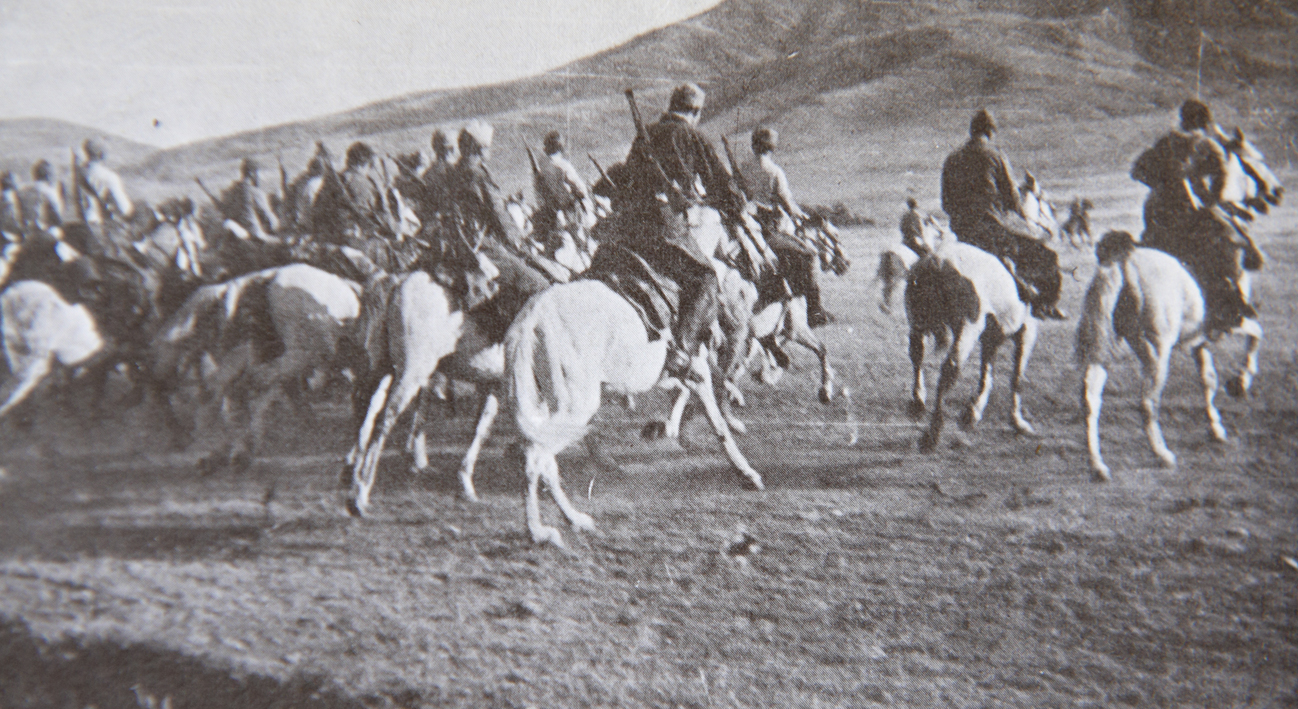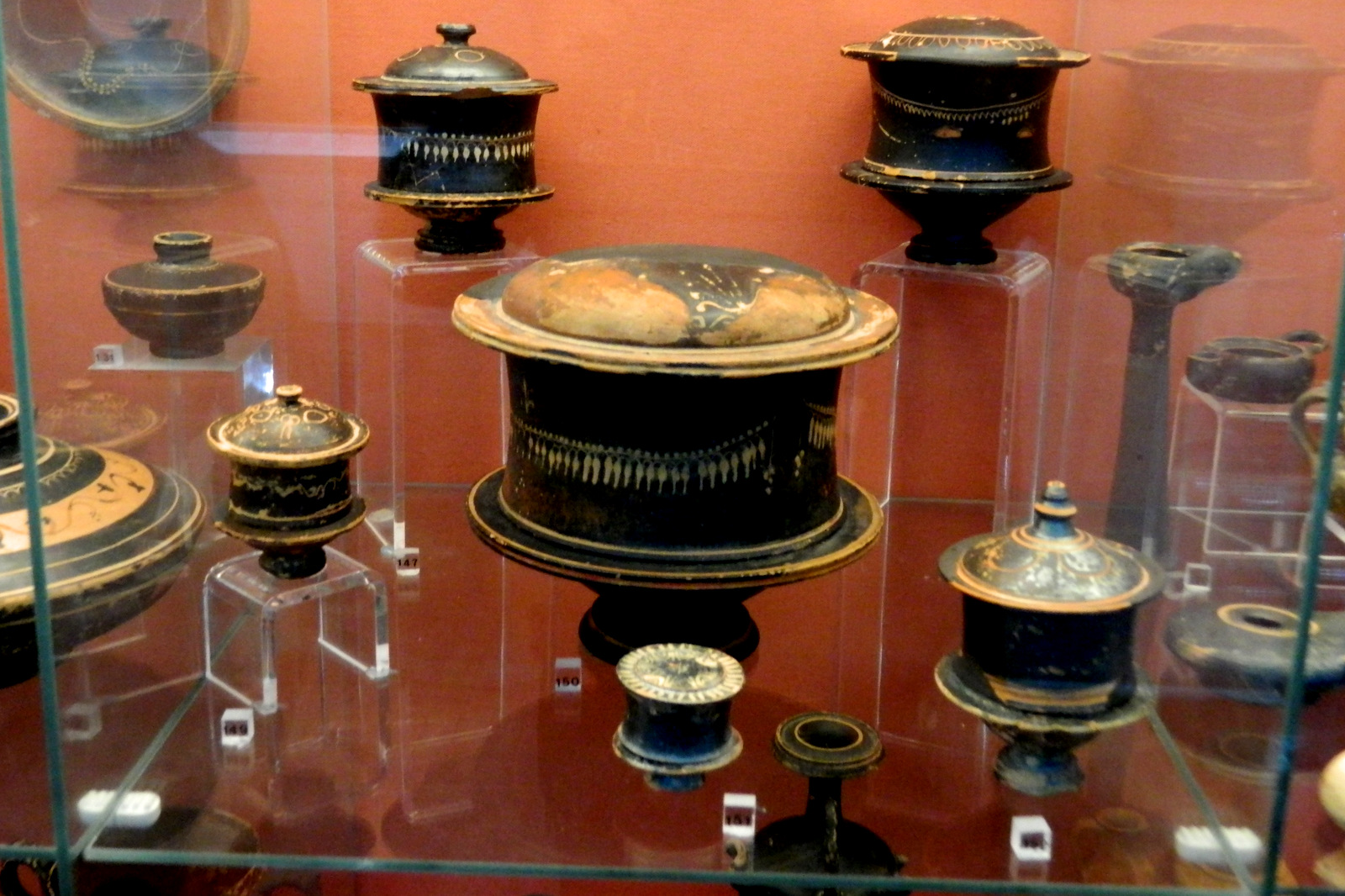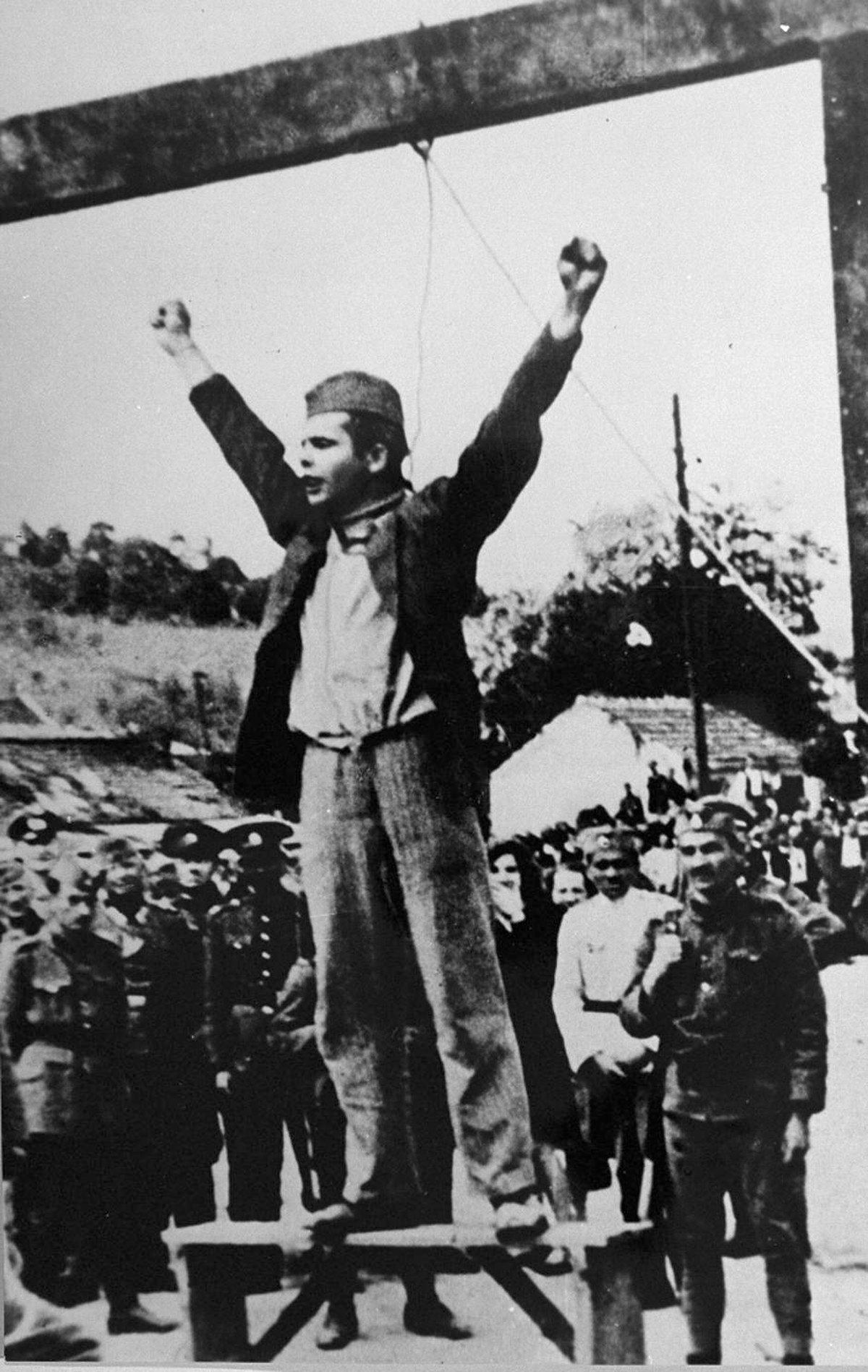|
Aris Velouchiotis
Athanasios Klaras ( el, Αθανάσιος Κλάρας; August 27, 1905 – June 15, 1945), better known by the ''nom de guerre'' Aris Velouchiotis ( el, Άρης Βελουχιώτης), was a Greek journalist, politician, member of the Communist Party of Greece, the most prominent leader and chief instigator of the Greek People's Liberation Army (ELAS) and the military branch of the National Liberation Front (EAM), which was the major resistance organization in occupied Greece from 1942 to 1945. Early years Aris Velouchiotis was born in Lamia, Greece in 1905, to an upper urban class family. His father was Dimitrios Klaras, a well-known lawyer in the area and his mother was Aglaia Zerva. Initially Klaras studied journalism, but later attended and graduated from the Geoponic School of Larissa. He left for Athens, where he did various jobs, participated in the leftist and antimilitary movement and later became a member of the Communist Party of Greece (KKE). During the 1920s ... [...More Info...] [...Related Items...] OR: [Wikipedia] [Google] [Baidu] |
Lamia (city)
Lamia ( el, Λαμία, ''Lamía'', ) is a city in central Greece. The city dates back to antiquity, and is today the capital of the regional unit of Phthiotis and of the Central Greece region (comprising five regional units). According to the 2011 census, the Municipality of Lamia has a population of 75.315 while Lamia itself a population of 52,006 inhabitants. The city is located on the slopes of Mount Othrys, near the river Spercheios. It serves as the agricultural center of a fertile rural and livestock area. Name One account says that the city was named after the mythological figure of Lamia, the daughter of Poseidon and queen of the Trachineans. Another holds that it is named after the Malians, the inhabitants of the surrounding area. In the Middle Ages, Lamia was called Zetounion (Ζητούνιον), a name first encountered in the 8th Ecumenical Council in 869. It was known as Girton under Frankish rule following the Fourth Crusade and later El Citó when it was ... [...More Info...] [...Related Items...] OR: [Wikipedia] [Google] [Baidu] |
Aegina
Aegina (; el, Αίγινα, ''Aígina'' ; grc, Αἴγῑνα) is one of the Saronic Islands of Greece in the Saronic Gulf, from Athens. Tradition derives the name from Aegina, the mother of the hero Aeacus, who was born on the island and became its king. Administration Municipality The municipality of Aegina consists of the island of Aegina and a few offshore islets. It is part of the Islands regional unit, Attica region. The municipality is subdivided into the following five communities (population in 2011 in parentheses ): * Kypseli (2124) * Mesagros (1361) * Perdika (823) * Vathy (1495) The regional capital is the town of Aegina, situated at the northwestern end of the island. Due to its proximity to Athens, it is a popular vacation place during the summer months, with quite a few Athenians owning second houses on the island. Province The province of Aegina ( el, Επαρχία Αίγινας) was one of the provinces of Greece, provinces of the Attica Prefectu ... [...More Info...] [...Related Items...] OR: [Wikipedia] [Google] [Baidu] |
Ares
Ares (; grc, Ἄρης, ''Árēs'' ) is the Greek god of war and courage. He is one of the Twelve Olympians, and the son of Zeus and Hera. The Greeks were ambivalent towards him. He embodies the physical valor necessary for success in war but can also personify sheer brutality and bloodlust, in contrast to his sister, the armored Athena, whose martial functions include military strategy and generalship. An association with Ares endows places, objects, and other deities with a savage, dangerous, or militarized quality. Although Ares' name shows his origins as Mycenaean, his reputation for savagery was thought by some to reflect his likely origins as a Thracian deity. Some cities in Greece and several in Asia Minor held annual festivals to bind and detain him as their protector. In parts of Asia Minor, he was an oracular deity. Still further away from Greece, the Scythians were said to ritually kill one in a hundred prisoners of war as an offering to their equivalent of Ares. ... [...More Info...] [...Related Items...] OR: [Wikipedia] [Google] [Baidu] |
Evrytania
Evrytania ( el, Ευρυτανία, ; Latin: ''Eurytania'') is one of the regional units of Greece. It is part of the region of Central Greece. Its capital is Karpenisi (approx. 8,000 inhabitants). Geography Evrytania is almost entirely formed of mountains, including the Tymfristos and the Panaitoliko in the south. Its rivers include the Acheloos in the west, Agrafiotis to the east, and Megdova in the east flowing down to the Ionian Sea. It is one of the least populated regional units in Greece. The area borders Aetolia-Acarnania to the west, southwest and south (west over the Acheloos river), Karditsa regional unit to the north, and Phthiotis to the east. Evrytania also features a famous skiing resort located near Karpenisi on the Tymfristos mountain. Climate Its climate is a mixture of Mediterranean and mountainous in the western portion. Much of the area receives snow in winter and is warm during the summer months. Transport The Greek National Road 38 from Agri ... [...More Info...] [...Related Items...] OR: [Wikipedia] [Google] [Baidu] |
Domnista
Domnista ( el, Δομνίστα) is a village and a former municipality in Evrytania, Greece. Since the 2011 local government reform, it is part of the municipality Karpenisi Karpenisi ( el, Καρπενήσι, ) is a town in central Greece. It is the capital of the regional unit of Evrytania. Karpenisi is situated in the valley of the river Karpenisiotis (Καρπενησιώτης), a tributary of the Megdovas, i ..., of which it is a municipal unit. The municipal unit has an area of 215.755 km2. Population 1,072 (2011). The seat of the municipality was in Krikello. References Populated places in Evrytania {{CentralGreece-geo-stub ... [...More Info...] [...Related Items...] OR: [Wikipedia] [Google] [Baidu] |
Partisan (military)
A partisan is a member of an irregular military force formed to oppose control of an area by a foreign power or by an army of military occupation, occupation by some kind of insurgent activity. The term can apply to the field element of resistance movements. The most common use in present parlance in several languages refers to Resistance during World War II, occupation resistance fighters during World War II, especially under the Yugoslav Partisans, Yugoslav partisan leader Josip Broz Tito. History before 1939 The initial concept of partisan warfare involved the use of militia , troops raised from the local population in a war zone (or in some cases regular forces) who would operate behind enemy front line , lines to disrupt communications, seize posts or villages as forward-operating bases, ambush convoys, impose war taxes or contributions, raid logistical stockpiles, and compel enemy forces to disperse and protect their base of operations. George Satterfield has analyse ... [...More Info...] [...Related Items...] OR: [Wikipedia] [Google] [Baidu] |
Central Greece
Continental Greece ( el, Στερεά Ελλάδα, Stereá Elláda; formerly , ''Chérsos Ellás''), colloquially known as Roúmeli (Ρούμελη), is a traditional geographic region of Greece. In English, the area is usually called Central Greece, but the equivalent Greek term (Κεντρική Ελλάδα, ''Kentrikí Elláda'') is more rarely used. It includes the southern part of the Greek mainland (sans the Peloponnese), as well as the offshore island of Euboea. Since 1987, its territory has been divided among the administrative regions of Central Greece and Attica, and the regional unit (former prefecture) of Aetolia-Acarnania in the administrative region of Western Greece. Etymology The region has traditionally been known as ''Roúmeli'' (Ρούμελη), a name deriving from the Turkish word '' Rūm-eli'', meaning "the land of the Rūm Byzantine_Greeks.html" ;"title="he Romans, i.e. the Byzantine Greeks">he Romans, i.e. the Byzantine Greeks and originally en ... [...More Info...] [...Related Items...] OR: [Wikipedia] [Google] [Baidu] |
Soviet Union
The Soviet Union,. officially the Union of Soviet Socialist Republics. (USSR),. was a List of former transcontinental countries#Since 1700, transcontinental country that spanned much of Eurasia from 1922 to 1991. A flagship communist state, it was nominally a Federation, federal union of Republics of the Soviet Union, fifteen national republics; in practice, both Government of the Soviet Union, its government and Economy of the Soviet Union, its economy were highly Soviet-type economic planning, centralized until its final years. It was a one-party state governed by the Communist Party of the Soviet Union, with the city of Moscow serving as its capital as well as that of its largest and most populous republic: the Russian Soviet Federative Socialist Republic, Russian SFSR. Other major cities included Saint Petersburg, Leningrad (Russian SFSR), Kyiv, Kiev (Ukrainian Soviet Socialist Republic, Ukrainian SSR), Minsk (Byelorussian Soviet Socialist Republic, Byelorussian SSR), Tas ... [...More Info...] [...Related Items...] OR: [Wikipedia] [Google] [Baidu] |
Operation Barbarossa
Operation Barbarossa (german: link=no, Unternehmen Barbarossa; ) was the invasion of the Soviet Union by Nazi Germany and many of its Axis allies, starting on Sunday, 22 June 1941, during the Second World War. The operation, code-named after Frederick Barbarossa ("red beard"), a 12th-century Holy Roman emperor and German king, put into action Nazi Germany's ideological goal of conquering the western Soviet Union to repopulate it with Germans. The German aimed to use some of the conquered people as forced labour for the Axis war effort while acquiring the oil reserves of the Caucasus as well as the agricultural resources of various Soviet territories. Their ultimate goal was to create more (living space) for Germany, and the eventual extermination of the indigenous Slavic peoples by mass deportation to Siberia, Germanisation, enslavement, and genocide. In the two years leading up to the invasion, Nazi Germany and the Soviet Union signed political and economic pacts fo ... [...More Info...] [...Related Items...] OR: [Wikipedia] [Google] [Baidu] |
Battle Of Greece
The German invasion of Greece, also known as the Battle of Greece or Operation Marita ( de , Unternehmen Marita, links = no), was the attack of Kingdom of Greece, Greece by Fascist Italy (1922–1943), Italy and Nazi Germany, Germany during World War II. The Italian invasion in October 1940, which is usually known as the Greco-Italian War, was followed by the German invasion in April 1941. Battle of Crete, German landings on the island of Crete (May 1941) came after Allied forces had been defeated in mainland Greece. These battles were part of the greater Balkans campaign (World War II), Balkans Campaign of the Axis powers and their associates. Following the Italian invasion on 28 October 1940, Greece, with British air and material support, repelled the initial Italian attack and a counter-attack in March 1941. When the German invasion, known as Operation Marita, began on 6 April, the bulk of the Hellenic army, Greek Army was on the Greek border with Albania under Italy, Albani ... [...More Info...] [...Related Items...] OR: [Wikipedia] [Google] [Baidu] |
Greco-Italian War
The Greco-Italian War (Greek: Ελληνοϊταλικός Πόλεμος, ''Ellinoïtalikós Pólemos''), also called the Italo-Greek War, Italian Campaign in Greece, and the War of '40 in Greece, took place between the kingdoms of Italy and Greece from 28 October 1940 to 23 April 1941. This local war began the Balkans Campaign of World War II between the Axis powers and the Allies and eventually turned into the Battle of Greece with British and German involvement. On 10 June 1940, Italy declared war on France and the United Kingdom. By September 1940, the Italians had invaded France, British Somaliland and Egypt. This was followed by a hostile press campaign in Italy against Greece, accused of being a British ally. A number of provocations culminated in the sinking of the Greek light cruiser ''Elli'' by the Italians on 15 August. On 28 October, Mussolini issued an ultimatum to Greece demanding the cession of Greek territory, which the Prime Minister of Greece, Ioannis Metaxa ... [...More Info...] [...Related Items...] OR: [Wikipedia] [Google] [Baidu] |






.jpg)
